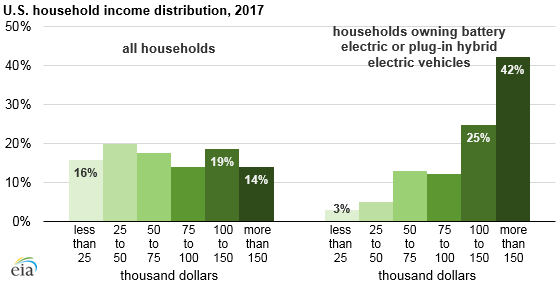Are Governor Walz’s Proposed California Car Mandates Racist?
In September, the Walz Administration announced its intention to force Minnesotans to comply with low-emissions vehicle (LEV) and ‘zero’-emissions vehicle (ZEV) regulations developed by unelected bureaucrats on the California Air Resources Board (CARB). Instead of asking the legislature to approve this move, Governor Walz wants to impose these regulations by using the rule-making process of the Minnesota Pollution Control Agency (MPCA).
As part of this process, MPCA is seeking comments from the public to inform the rule-making procedure. I encourage you to submit your comments by emailing [email protected] to let the agency know what your thoughts are about the subject.
One of the aspects MPCA is especially interested in hearing about is the impact these regulations would have on “communities of color and lower income communities.” MPCA’s interest in these impacts is especially noteworthy because CARB is currently being sued by a group of nationally renowned civil rights activists who allege that their greenhouse gas emissions regulations are racist.
I have drafted the letter below to help you inform MPCA and the Walz Administration about these developments. Please feel free to copy and paste these comments into the text of an email.
Dear OAH Legal Assistant Sheena Denny,
I am writing today to make a formal public comment regarding new proposed air quality rules under consideration by the Minnesota Pollution Control Agency (MPCA) to reduce greenhouse gas emissions from passenger vehicles, Minnesota Rules, 7023. These rules would adopt California’s standards for Low Emission Vehicles (LEVs) and Zero Emission Vehicles (ZEVs), promulgated by the California Air Resources Board (CARB), in Minnesota.
In supporting documents, MPCA states “Below is a list of potential topics the MPCA is considering analyzing to better understand the potential impacts of this rule on all Minnesotans, and especially on communities of color and lower income communities.”
I believe there is great merit in investigating the impact the proposed regulations will have on these stakeholder groups. As such, I believe it is vitally important that MPCA understands that a group of nationally-renowned civil rights activists are currently suing CARB because their regulations on greenhouse gas emissions are having disparate negative impacts on low-income and minority neighborhoods.
The group, known as The Two Hundred, alleges CARB’s greenhouse gas emissions regulations are “staggering, unlawful and racist,” and contributing to “resegregation.”
According to an article in Forbes:
“Top civil rights leaders are suing California for climate policies they say disproportionately harm its poorest residents, particularly Latinos and African Americans.
“California politicians are using anti-racist and environmentalist words to hide the regressive impact of their climate policies on the poor and people of color,” said John Gamboa, the co-founder of The Two Hundred, a coalition of prominent civil rights leaders, which filed a lawsuit against the California Air Resources Board (CARB) in Superior Court.
The suit claims CARB is in violation of the Fair Employment and Housing Act, the California Global Warming and Solutions Act, the California Clean Air Act, and other federal and state laws.
“California’s climate policies guarantee that housing, transportation and electricity prices will continue to rise,” the complaint notes, “while ‘gateway’ jobs to the middle class for those without college degrees, such as manufacturing and logistics, will continue to locate in other states.”
The concerns voiced by the Two Hundred regarding the negative impact of CARB’s policies likely apply to the Walz Administration’s adoption of identical policies.
For one, the proposed regulations affecting Minnesotans would be drafted by CARB, the agency being sued by The Two Hundred. Because the Clean Air Act (CAA) requires states wishing to adopt California’s standards to do so exactly, Minnesota has no flexibility within the rules to adopt Minnesota-specific changes that may help mitigate the negative impacts CARB’s policies are inflicting on Latino and African American communities in California.
Secondly, auto-dealers in Colorado, which was the most recent state to adopt the regulations drafted by CARB, have estimated these regulations would increase the cost of vehicles by $1,200 to $2,500 per vehicle. Such price increases would disproportionately harm low-income families, as George Lefcoe, a professor of law at the University of Southern California stated in Forbes:
“Lefcoe, who is not involved in the case, said the lawsuit’s challenge to transportation policies is particularly powerful. “Automobiles are the survival mechanism for low-income people,” noted Lefcoe. “If you try to increase the cost of automobiles, you hurt low-income people.”
Regardless of intent, rising automobile prices will harm low-income people the most.
I also think the LEV and ZEV rules are problematic because the benefits would disproportionately accrue in affluent, majority-Caucasian neighborhoods.
Data from the federal Energy Information Administration show 67 percent of electric vehicles (EV) purchased were bought by households earning more than $100,000 per year. Only three percent of households earning less than $25,000 owned an electric vehicle, and fewer than five percent of households earning between $25,000 and $50,000 owned an EV.

Additionally, research conducted by professors at Morgan State University studying the socio-demographic attributes of EV owners concluded that 85 percent of EV owners are white, and that “EV owners are white males who are more educated, affluent, older, and more environmentally focused than are owners of internal combustion engine vehicles. EVs were most popular among Democrats and least among those not interested in politics.”
The evidence clearly shows that the benefits of these rules would be concentrated among privileged demographics while the costs would be disproportionately borne by minority and low-income communities. Therefore, I am asking MPCA to withdraw both the LEV and ZEV standards from consideration.
Thank you for considering my comments and adding them to the official docket.
Your Name,
Address
Phone Number